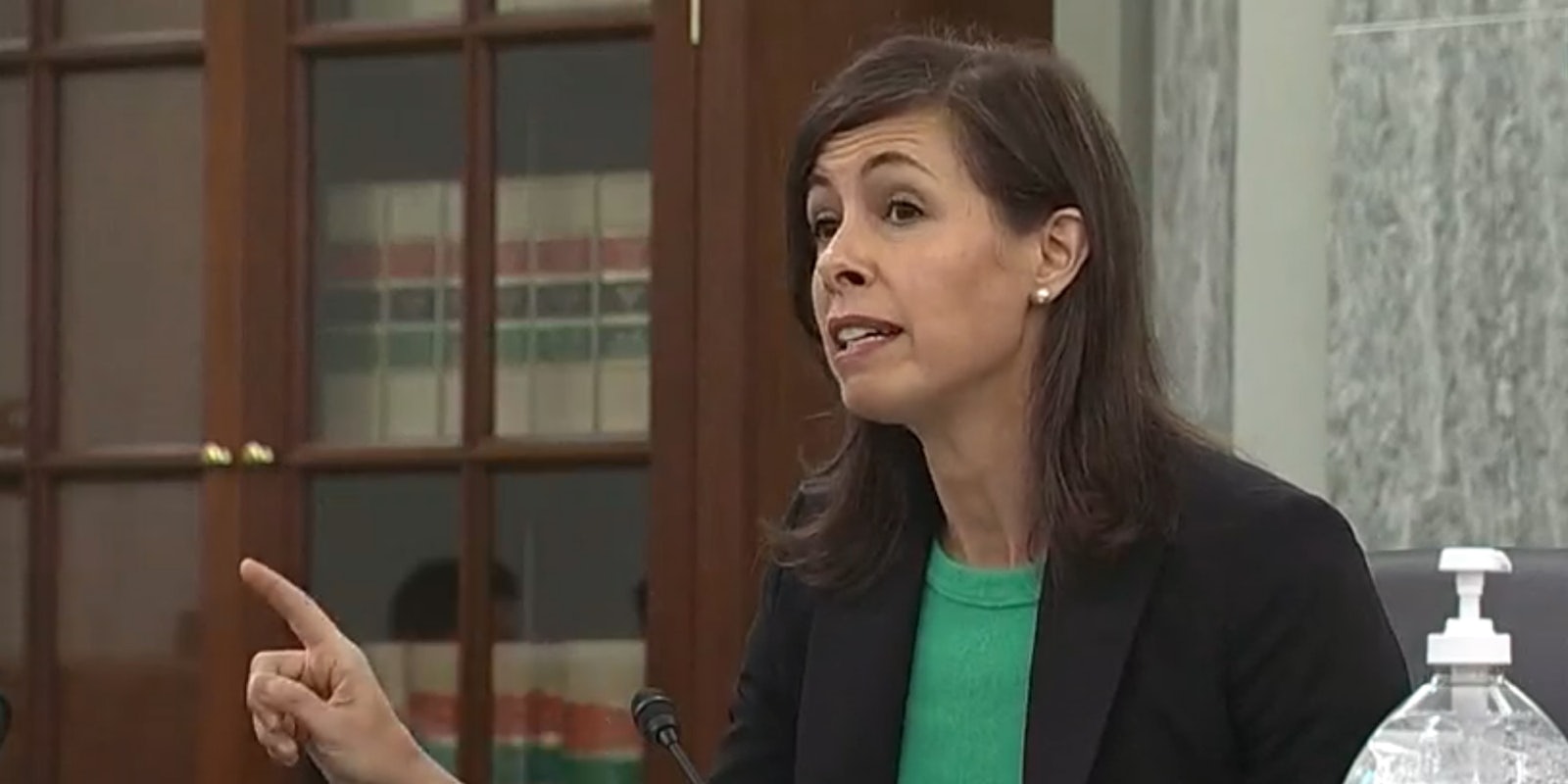Acting Federal Communications Commission (FCC) Chairwoman Jessica Rosenworcel said the Senate’s proposal to extend a broadband benefit program indefinitely—but cut the monthly subsidy—could be “challenging.”
The Senate’s infrastructure package agreed to last month set aside $14.2 billion to extend the Emergency Broadband Benefit (EBB) indefinitely. The EBB is a coronavirus-related program that allows eligible Americans to get a monthly discount on their internet bill.
The EBB has certain requirements to be eligible, like being enrolled in SNAP, Medicaid, Lifeline, or having a child in a reduced-price meal program at school. So far, more than 5 million households have enrolled in it. The pandemic sharply underlined the country’s long-existing digital divide, the gap between those who have access and can afford high-speed internet and those who don’t.
The Senate’s proposal would cut the monthly discounts from $50 per household each month to $30 per month. It would also rename the program the “Affordable Connectivity Program.” The EBB was set to run until shortly after the government marked an end to the pandemic or it ran out of the $3.2 billion Congress initially allocated for it.
When asked about the Senate proposal at the Politico’s Tech Summit earlier this week, Rosenworcel lauded the EBB program and noted that it helped more than 5 million people stay connected amid the pandemic. She added that an average of 200,000 households a week are signing up for it.
However, she did share hint at some concerns with the proposed decrease in monthly discounts.
“I think all of this demonstrates that the demand for a broadband affordability program is real, and having a program like this in place is important,” she said. “As far as what the next successor program looks like, obviously that’s going to be up to Congress. But, I do think it would be challenging for the agency to reduce the support from $50 a month to the $30 a month. But we will take whatever our legislation hands us because I think it’s really important that we have affordability programs like this and we make sure that they are secure and sustainable.”
Rosenworcel saying the decrease would be “challenging” was similar to what public interest groups said when the Senate’s plan was initially released. Chris Lewis, the president and CEO of Public Knowledge, said at the time that the organization was “disappointed” by it, while also noting it was glad the program was being extended.
Meanwhile, Rep. Frank Pallone (D-N.J.), the head of the House Energy and Commerce Committee, said he had “real concerns” about the drop in monthly subsidy during a hearing in Congress in August. Pallone also called extending the plan indefinitely “clearly progress.”


